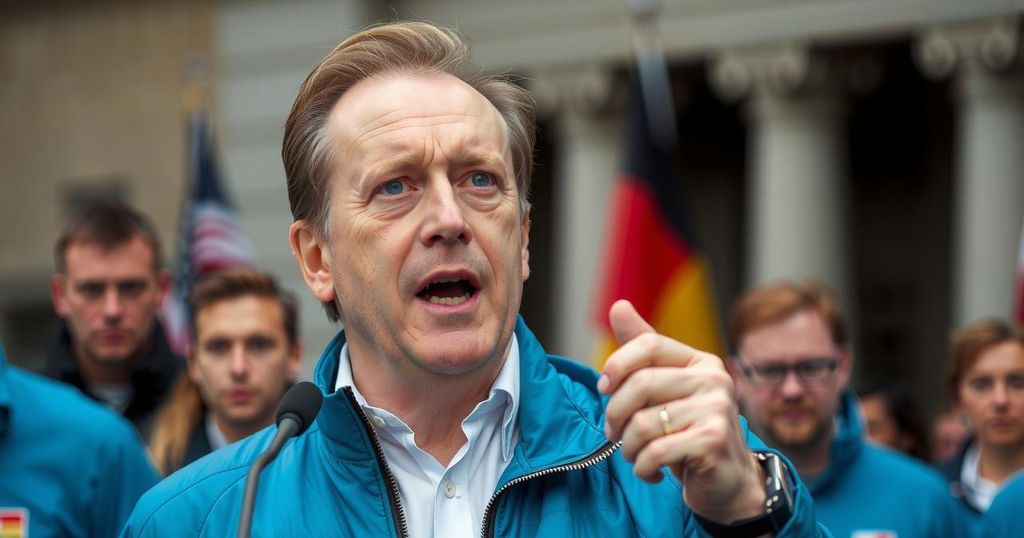Elon Musk’s op-ed in Welt am Sonntag supporting the AfD ignites controversy, with backlash from German political figures highlighting concerns over foreign influence in upcoming elections. Musk claims the AfD embodies hope for Germany’s economy, countering its extremist label. This incident raises significant questions about media’s role in shaping political narratives and maintaining democratic integrity.
On December 30, 2024, billionaire Elon Musk publicly reiterated his support for Germany’s far-right Alternative for Germany (AfD) through an op-ed in the newspaper Welt am Sonntag. Musk described the AfD as “the last spark of hope for the country,” claiming that traditional political parties have led Germany towards an “economic and cultural collapse.” He criticized perceptions of the AfD as extremist, citing the party leader Alice Weidel’s same-sex relationship as a rebuttal to such labels. This endorsement triggered significant backlash, leading to protests from editorial staff and the resignation of a senior editor at Welt am Sonntag.
The political ramifications of Musk’s support were profound, drawing criticism from prominent political figures. Friedrich Merz, the conservative candidate for chancellor, denounced Musk’s article as a previously unseen level of foreign interference in German politics. Lars Klingbeil of the center-left Social Democrats equated Musk’s actions to those of autocrats seeking to destabilize democracy. Moreover, Mika Beuster of the DJV warned against media becoming vehicles for such influences in the critical period leading up to elections.
Germany’s constitution guarantees press freedom, allowing media to endorse political candidates; however, such endorsements are exceptions to general practices. Musk’s involvement is notable given his economic interests in the country, particularly with his Tesla operations. His op-ed serves as a potential catalyst for the normalization of right-wing populism in Germany, and analyses suggest a broader agenda to promote similar ideologies across the globe.
Elon Musk’s recent endorsement of the Alternative for Germany (AfD) highlights the intersection between technology entrepreneurs and political movements. The AfD has garnered significant appeal among those disillusioned with traditional parties, making them a notable force in German politics. Musk’s comments come in a context where freedom of expression is enshrined in German law, yet the appropriation of media platforms for political advocacy, especially by foreign figures, raises ethical questions regarding journalistic integrity and democratic processes.
In conclusion, Elon Musk’s endorsement of the AfD posits a significant foreign influence in German politics, stirring debate over the implications of such endorsements amidst electoral processes. The backlash from various political stakeholders demonstrates the contentious nature of foreign perspectives in domestic affairs. As we observe the unfolding political landscape, the dialogue around press freedom and its responsibilities remains paramount.
Original Source: www.dw.com






